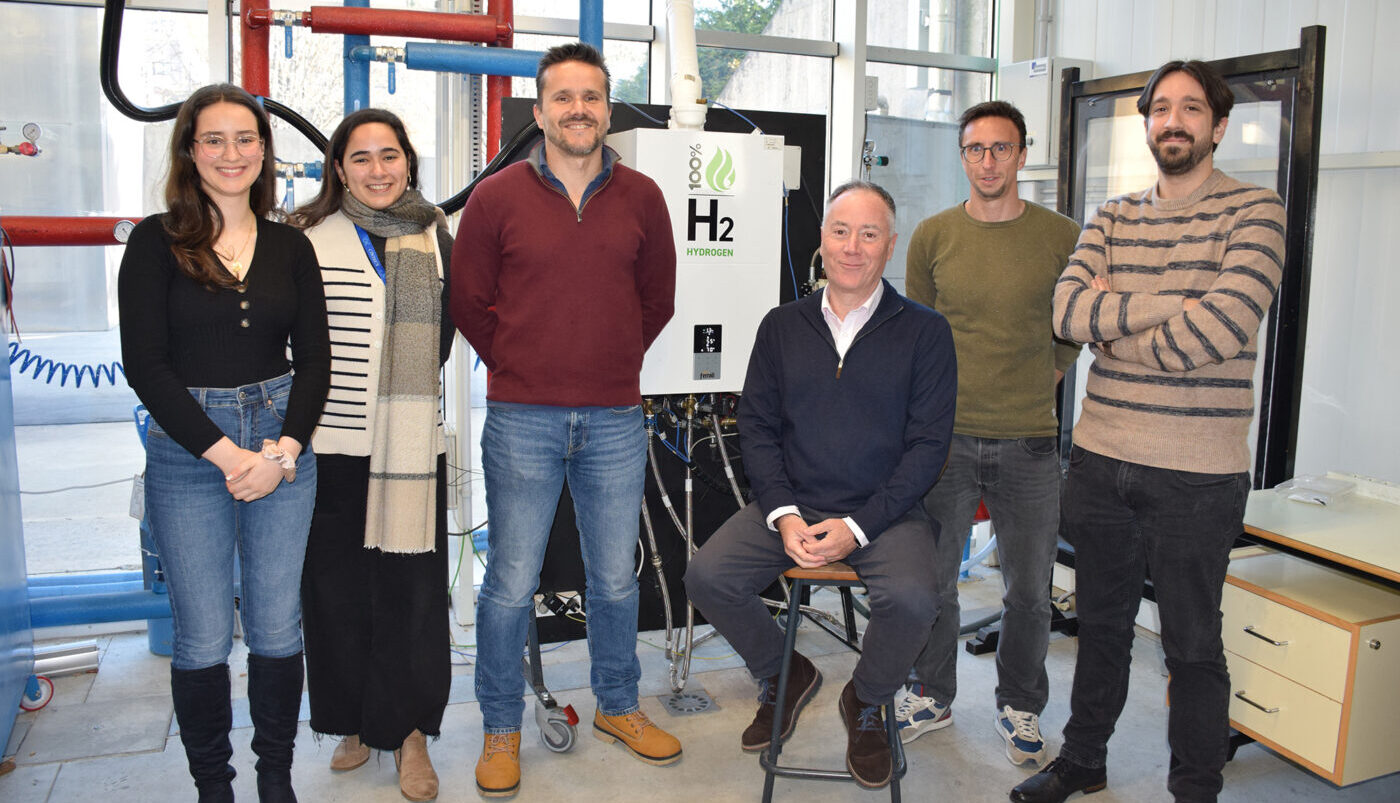The University of Vigo will host the first fully instrumented pilot plant for the exhaustive research of pure hydrogen combustion. The project comes from the GTE Energy Technology Group, a cutting-edge team currently made up of around fifty researchers with different lines of work, united by a common axis: the search for sustainable energy solutions, attached to the Center for Research in Technologies, Energy and Industrial Processes, Cintecx,
In a global context where industrial decarbonization is a priority objective, hydrogen is presented as a “key and promising” fuel to replace fossil fuels in processes that require medium and high temperatures in the face of the limitations of heat pumps and the problems of total electrification that are encountered, both from the point of inefficiency in terms of energy conversion and problems of grid stability and the need for major investments in infrastructure.
The launch of this pilot plant is one of the central axes of the project Development of advanced strategies for the efficient combustion of pure hydrogen for real-scale applications, financed with 218,750 euros by the Ministry of Science, Innovation and Universities within the call for Knowledge Generation Projects 2023. “At the moment we are working at Cintecx, in the laboratories where we already have the boiler installed, but the idea is to be able to do something bigger, although at the moment, it has not yet been finalized,” explains professor José Luis Míguez Tabarés, general coordinator of the GTE group.
Three years of work ahead
They started last September and have three years of work ahead, until August 31, 2027. The project is structured around two fundamental axes. Firstly, a detailed analysis of the commercial pure hydrogen boiler developed by the Ferroli company that they already have installed in the laboratory will be carried out, a pioneering system that is already part of the GTE group’s equipment. This research will allow, according to those responsible, to evaluate its operation under real operating conditions, as well as characterize its efficiency and stability in combustion.
Secondly, the pilot plant will be designed and built, an experimental system that will allow precise control of key variables and advanced characterization of combustion phenomena. “To date, most studies in this field have focused on mixtures of hydrogen with hydrocarbons, so the analysis of pure hydrogen combustion at this scale and with this level of sensorization represents a significant contribution to this field,” emphasizes Míguez Tabarés.
In detail, one of the main objectives of the pilot plant will be the experimental and numerical analysis of pure hydrogen combustion and the study of different nozzle designs to improve flame stability and process efficiency. Hydrogen combustion presents specific challenges, such as flashback or its high temperature, which can influence the generation of thermal NOx -nitrogen oxides-. To address these challenges, the research will also explore innovative solutions, such as combustion in porous media. “This technique modifies the predominant heat transfer mechanism, which in hydrogen boilers is mainly convective, converting it into a radiation-dominated process,” explain the researchers. The porous medium also provides high thermal inertia in the flame region, which significantly improves its stability. “In addition, it generates more homogeneous combustion, reducing maximum flame temperatures and decreasing the formation of thermal NOx.”
“Valuable empirical data” for future large-scale implementation
The expected impact of this project on the generation of scientific-technical information in the field of hydrogen combustion is significant. “The development of a pilot plant for hydrogen combustion on an applied scale represents a novelty in itself and will provide valuable empirical data, as well as detailed information on the process on a macroscopic scale,” say those responsible for the project, a team headed by Míguez Tabarés and, in this case, completed by Jacobo Porteiro Fresco, David Patiño Vilas, Amanda Franco Sardinha, Marta María Caride Pérez and Sergio Chapela Lopez.
These empirical data include understanding two practical challenges, the operational dynamics of hydrogen combustion under real conditions and safety considerations, fundamental aspects for the scalability of this technology and its large-scale implementation.
Furthermore, the creation of submodels specifically designed for hydrogen combustion constitutes an important advance in the predictive capabilities of simulation technologies. These models will allow a more precise and detailed analysis of the combustion process, heat transfer and emission characteristics in a computationally efficient manner. “Likewise, it will facilitate the optimization of the design of burners and other equipment, improving their efficiency and reducing their environmental impact.”
International collaboration network
The group’s management emphasizes that, given the current relevance of this topic, the effort to maintain and establish international collaborations with other research centers that work on similar lines is constant. This collaborative approach seeks to take advantage of the experience and resources of multiple research entities, promoting a global effort to address the challenges related to the use of hydrogen as a fuel in boilers. “Our current network of collaboration and participation in international committees provides us with the right environment to strengthen this line of research,” emphasizes the head of the group.

